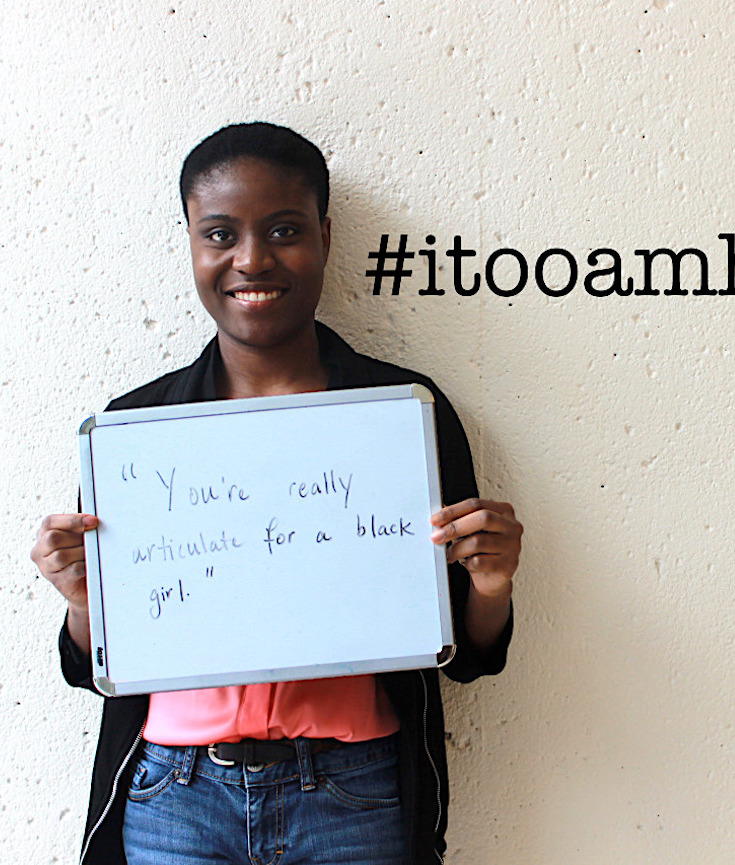FOR IMMEDIATE RELEASE, HARVARD BLACK GRADUATE STUDENT ALLIANCE
The event has taken nearly a year to plan and is an effort to acknowledge the struggles and resilience Black students have had to possess in order to thrive in higher education—an environment where minorities are typically underrepresented.
“This is an opportunity to celebrate Harvard’s Black excellence and Black brilliance,” said Michael Huggins, who is graduating with a Master’s in Public Policy from the Harvard Kennedy School. “It’s an event where we can see each other, and our parents and family can see us as a collective, whole group. A community.

“This is not about segregation,” Huggins said. “It’s about fellowship and building a community. This is a chance to reaffirm for each other that we enter the work world with a network of supporters standing with us. We are all partners.”
The ceremony comes at a time when there are a growing number of voices drawing attention to the experiences of Black students on college campuses, including micro-aggressions, passive racist comments and the marginalization of minority experiences in both reading assignments and learning materials.


Despite Harvard’s high graduation rate and Ivy League status, students are quite vocal about these occurrences on campus. Last year, Harvard Law School received student pressure to resign their crest that contained symbols of Isaac Royall Jr., an original benefactor who enslaved Black people in Antigua and Massachusetts. The Law School’s Black professors also had their portraits taped over in 2015.
[mc4wp_form id=”6042″]
Others feel isolated and at times alienated on campus. Historic wealth disparities and cultural differences create a divide that can make studying a greater challenge, said Courtney Woods, a student who is finishing a master’s degree in education policy and management from the Graduate School of Education.
“Harvard’s institutional foundation is in direct conflict with the needs of Black students,” she said. “There is a legacy of slavery, epistemic racism and colonization at Harvard, which was an institution founded to train rising imperialist leaders. This is a history that we are reclaiming.”
But this ceremony places a focus on the Black students who have established themselves as leaders in a fraught environment, she said.

“It speaks volumes that there has never been a Black graduation ceremony until now,” she said. “We created this from scratch, because for me, for many of us, we are not here alone. I carry with me the dreams and desires of my family. And as a first generation, I know I am here to change the trajectory for all of us.”
Scheduled for May 23rd at 11 a.m., the ceremony will take place at Holmes Field, near the Harvard Law School campus. The Harvard Black Graduate Student Alliance, a collective of graduate students led by Huggins and Woods, reached out to schools and professors to raise more than $27,000 to pay for the ceremony and the reception that will be held afterward. Eight of the twelve schools contributed: Harvard Medical School, Harvard Graduate School of Education, Harvard Business School, Graduate School of Arts and Sciences, Harvard Divinity School, Harvard Kennedy School, the Extension School Division of Continuing Education, and Harvard Law School, who is hosting the ceremony.
The ceremony will be hosted by Lisa Coleman, the Chief Diversity Officer and Special Assistant to the President, and Dean Karen Jackson-Weaver, a Senior Associate Dean at Harvard Kennedy School
The student graduates will also participate in the main Harvard graduation. This separate affair is optional.
More than 125 students have registered to participate, Huggins said. This year, the ceremony will focus on graduate students but a few College students plan to attend. But the organizers hope it will be expanded to include more undergraduates and alumni next year, he said.

Traditionally, mainstream large graduation ceremonies have a jovial and playful tone.
But Black graduation ceremonies take on a different emotional mood, Woods said. While the students are elated about their accomplishments, they are also aware of the sacrifices that made it possible for them to study, she said.
“It’s very emotional and it’s symbolic,” Woods said. “There is a trauma we’ve experienced here. But this is for our families to see that although there are so few of us here, we have made it. We will talk about our concerns about what’s happening to Black bodies and the police violence. At our ceremony we will call the names and remember. ”
Four student keynote speakers were selected to speak at the ceremony: Woods, Terrance Rogers of Harvard Business School, Kyrah Malika Daniels of the Graduate School of Arts and Sciences, and Duwain Pinder, a dual degree student of Harvard Kennedy School and Harvard Business School. Each focuses their speech on uplifting and empowering one another to tackle ongoing and looming issues in the Black community.
Each graduating student will have a stole made of African Kente cloth placed on top of their robe, representing the unified connection to their African heritage.

Black student graduations are held at Stanford University, Columbia University and at Temple University. At times, the ceremonies have faced criticism from students and leaders who say they appear divisive.
But most African-Americans see the ceremonies as a necessary affirmation – particularly at elite institutions.
“The students are excited and have put a lot of work into this,” Huggins said. “Too often at Harvard, there is not cross discipline contact between Black students. So it can feel like you are the only person of color. At this graduation, we can show each other and the administration that we are here, we are strong and we are not going away.”


You must be logged in to post a comment.